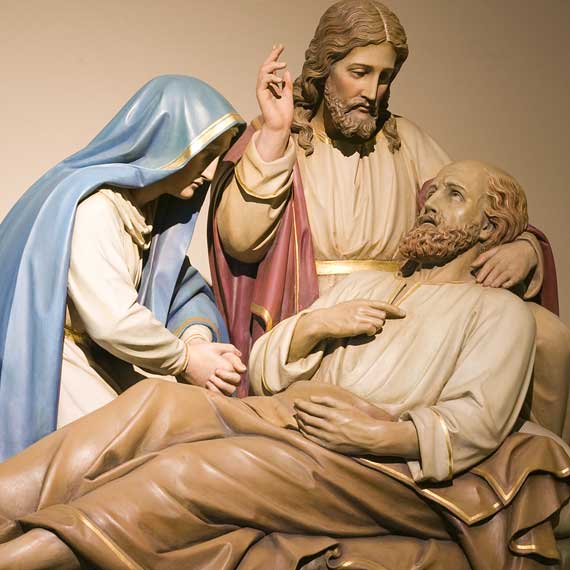The Ancient Prayer to St. Joseph is one of my favorite prayers. I wrote a reflection on the prayer which can be read here. In this article, I wanted to focus on the words and claims that generally accompany this prayer and are the roots of its “Ancient” title.
Depending on where the prayer is published, a disclaimer may preceed the words that accompany the prayer, noting that there is no guarantee of accuracy or certainty in the claims. These words generally accompany the prayer,
“This prayer was found in the 50th year of our Lord and Savior Jesus Christ. In 1505, it was sent from the pope to Emperor Charles when he was going into battle. Whoever shall read this prayer or hear it or keep it about themselves, shall never die a sudden death or be drowned, nor shall poison take effect on them; neither shall they fall into the hands of the enemy or be burned in any fire or be overpowered in battle. Say for nine mornings for anything you desire. It has never been known to fail.”
I will admit that part of my initial attraction to this prayer was due to the allure of its claims of its age and military style mysticism, such as never being “overpowered in battle”. Looking into these claims further, we might account them as slightly more mythical than factual.
Public devotion to St. Joseph does not appear until the early fourth century by the Copts. Recognized devotion to St. Joseph in the western church seems to have started much later than that, with the first church dedicated to St. Joseph being constructed in 1129 in Bologna. The claim that the prayer was found in the 50 AD would be unlikely as during the infancy of the church “only martyrs of the church enjoyed veneration.” St. Joseph was not passed over completely in the early church, but it would be somewhat difficult to find a prayer dedicated specifically to him during the first century AD.
In regards to the claim that the prayer was sent to Emperor Charles V from the Pope in 1505 while going into battle, the year 1505 raises doubt about historical accuracy. Charles V was born in the year 1500. This would mean either Pope Julius II would have sent the prayer to a five year old Charles V and his family, or the prayer was sent much later than the stated date, as Charles V began his rein as Holy Roman Emperor in 1519. While this prayer may have existed at the time, and could have been sent to Charles V, the lack of specification of which pope sent the prayer and the questions surrounding the date detract from the overall credibility of the claim.
The claims that the prayer renders poison ineffective or prevents a hearer or sayer of the prayer from being captured or overpowered in battle are claims of faith, that currently have no historical validation or corroboration, but it can be easily understood why these specific claims accompany a prayer to St. Joseph. They are quite masculine and valiant which solidifies the depiction of St. Joseph’s strength, virtue and protection. If the prayers origins were during the early 16th century, the claims would be quite relatable and useful to soldiers and men of the time as well.
Lastly, the claim that it is never known to fail should be evaluated with reverence and nuance. Our understanding of prayer and God’s answers to them would require volumes of theology books, intense study of scripture and hours of discussion. We do know that God can hear our prayers and God can answer our prayers. What we want to avoid at all costs is the reduction of our prayer, worship and devotion to simple superstition. Superstition is a misunderstanding of our relationship with God. Our prayer should be focused on conforming to His will and not asking God’s will to conform to our fallen, earthly wills (although at times our petitions can be just and in accord with His will). Novena’s do not bring about anything we want on earth, but taken at face value, the claim “it has never been known to fail” can certainly sound as a promise of such. It could be said that none of our prayers fail or go unanswered, but we must accept that our infinite God has an infinite number of ways to answer our prayers. We cannot expect our desired outcome to always arise, and it is our duty to ask God for his grace and strength to help us accept any answer we receive.
With the claims about the Ancient Prayer to St. Joseph being evaluated, we can cherish and implement the powerful request for St. Joesph’s intercession in our life appropriately.
